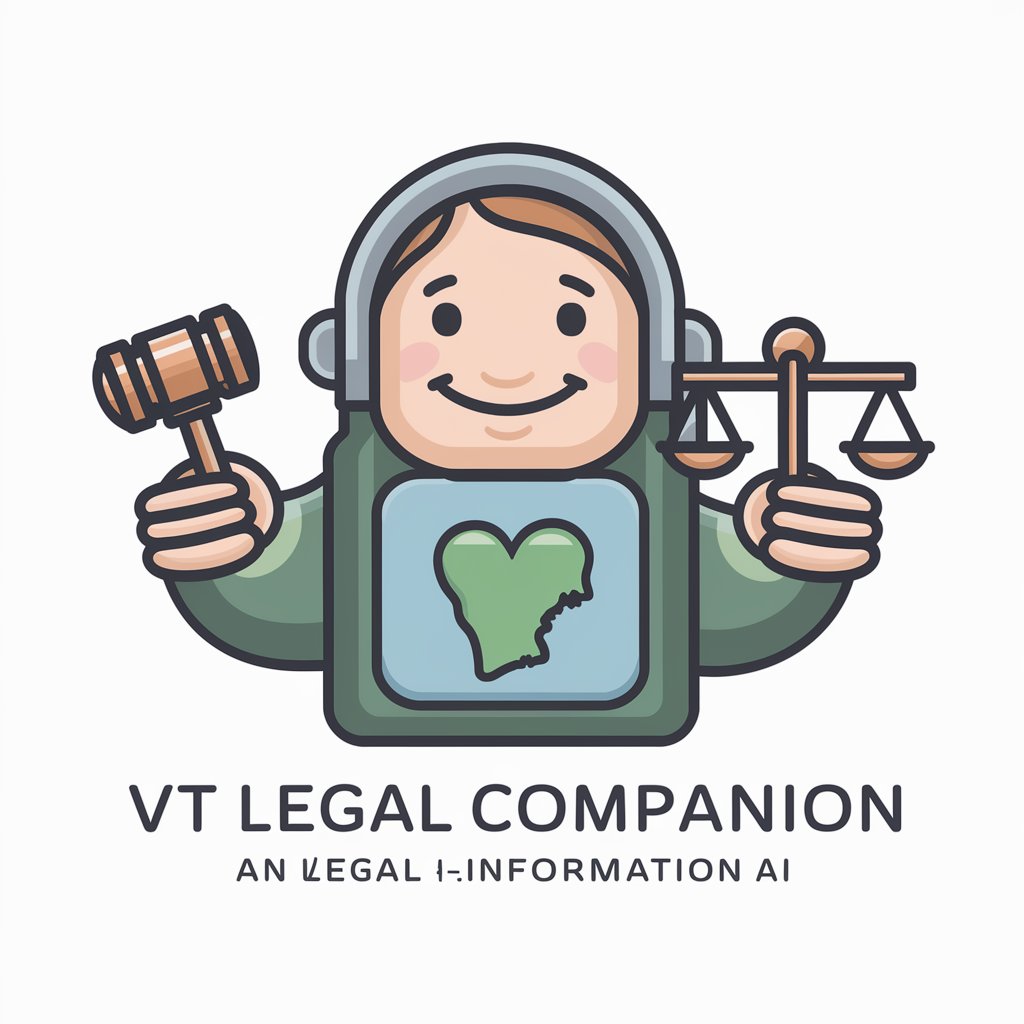5 GPTs for Employment Issues Powered by AI for Free of 2026
AI GPTs for Employment Issues refer to the application of Generative Pre-trained Transformers in addressing, analyzing, and providing solutions for a range of employment-related topics. These tools leverage the advanced capabilities of AI to understand, generate, and process natural language, making them highly effective for tasks such as resume screening, job matching, employee feedback analysis, legal compliance, and more. They are designed to assist in simplifying complex data, providing insights, and automating tasks within the employment sector, thereby enhancing efficiency and decision-making processes.
Top 5 GPTs for Employment Issues are: Anwalt 🇨🇭 Recht, Gesetze, Verträge,Trillian - Ditt stöd i arbetsrättsliga frågor,Legal Letter Assistant,Paramount LegalAdvisor AI,VT Legal Companion
Anwalt 🇨🇭 Recht, Gesetze, Verträge
Empowering legal clarity with AI

Trillian - Ditt stöd i arbetsrättsliga frågor
AI-powered Swedish labor law advisor

Legal Letter Assistant
Streamlining legal documentation with AI

Paramount LegalAdvisor AI
Empowering Legal Decisions with AI

VT Legal Companion
Empowering Legal Insights with AI

Key Attributes and Functionalities
AI GPTs for Employment Issues boast a range of unique characteristics, including natural language understanding and generation, adaptability to different employment contexts, and the ability to process large volumes of data efficiently. These tools can perform tasks from basic information retrieval to complex analysis, such as identifying trends in employee turnover or automating job postings. Special features may include tailored language models for specific industries, integration capabilities with HR systems, real-time labor market analysis, and personalized training and development recommendations.
Who Stands to Benefit
The primary beneficiaries of AI GPTs tools for Employment Issues include HR professionals, recruiters, job seekers, employment lawyers, and policy makers. These tools are accessible to novices, offering intuitive interfaces and pre-built models for quick deployment, while also providing extensive customization options for developers and professionals with technical skills. This dual approach ensures that a wide range of users can leverage AI GPTs to address employment challenges effectively.
Try Our other AI GPTs tools for Free
Creative Tactics
Explore AI GPTs for Creative Tactics: transformative AI tools designed to fuel innovation, solve complex problems, and generate unique content across creative industries.
Image Segmentation
Discover the transformative power of AI GPTs for Image Segmentation, advanced tools designed to enhance image analysis through precise, adaptable segmentation techniques suitable for a wide range of applications.
Fluorescence Quantification
Discover the power of AI GPT tools for Fluorescence Quantification, designed to enhance accuracy, efficiency, and adaptability in scientific research.
Biological Imaging
Discover how AI GPTs for Biological Imaging are transforming research and diagnostics with advanced analysis and interpretation of biological images.
Santa Interaction
Discover how AI GPTs for Santa Interaction can enhance your holiday season with magical conversations, personalized stories, and engaging content about Santa Claus.
Documentation Management
Discover how AI GPTs revolutionize Documentation Management with intelligent automation, enhancing productivity and accuracy for diverse documentation tasks. Tailored for professionals and novices alike.
Further Exploration
AI GPTs stand at the forefront of transforming the employment landscape, offering solutions that range from enhancing candidate experience to forecasting labor market trends. Their ability to integrate with existing systems and adapt to various employment contexts makes them invaluable. As technology evolves, these tools are expected to become even more sophisticated, offering deeper insights and automating more complex tasks.
Frequently Asked Questions
What exactly are AI GPTs for Employment Issues?
AI GPTs for Employment Issues are advanced AI tools designed to tackle a variety of tasks related to employment, from automating hiring processes to analyzing workplace trends.
How can these tools improve the hiring process?
They can streamline candidate screening, enhance job matching, and automate communications, thereby increasing efficiency and reducing bias.
Are AI GPTs accessible to those without programming skills?
Yes, many AI GPTs offer user-friendly interfaces that require no coding, making them accessible to non-technical users.
Can these tools be customized for specific industries?
Absolutely. AI GPTs can be tailored to understand and process industry-specific terminology and contexts, enhancing their applicability.
How do AI GPTs handle sensitive employment data?
These tools are designed with privacy and security in mind, ensuring that sensitive information is processed in compliance with legal standards.
Can AI GPTs integrate with existing HR systems?
Yes, many AI GPTs are built to seamlessly integrate with existing HR platforms, allowing for efficient data exchange and process automation.
How can job seekers benefit from AI GPTs?
AI GPTs can offer personalized job recommendations, resume feedback, and interview preparation, aiding job seekers in their search.
What future advancements can we expect in AI GPTs for Employment Issues?
Ongoing improvements will likely include more nuanced language understanding, advanced predictive analytics, and enhanced customization, further revolutionizing employment processes.